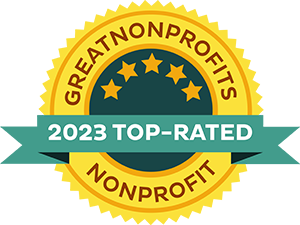Activists Press “Harm Reduction” Response To Covid-19
by THOMAS BREEN via The New Haven Independent | May 8, 2020
Town and gown advocates for the incarcerated, sex workers, drug users, and the homeless have teamed up to promote a “harm reduction” approach to tackling the Covid-19 pandemic.
They’re calling for government action ranging from the rapid release of prisoners to greater access to public restrooms.
Roughly 25 people virtually gathered on Thursday afternoon to issue those calls during an hour-long Zoom press conference.
The presser was organized by a coalition of local, statewide, and Yale-affiliated advocacy groups, including Stop Solitary-Connecticut, the Connecticut Harm Reduction Working Group, Sex Workers and Allies Network (SWAN), Greater Hartford Harm Reduction Coalition, Katal Center for Health, Equity, and Justice, Alliance for Living, Yale Program for Recovery and Community Health, Yale Global Health Justice Partnership, and One Standard of Justice.
It was anchored by long-time local social justice activists Barbara Fair and Beatrice Codianni and by Yale-affiliated infectious disease experts Gregg Gonsalves and Rick Altice.
“Harm reduction” broadly speaking refers to efforts to reduce negative legal, social, and health impacts associated with drug use.
Over the past nearly two months since the start of the novel coronavirus outbreak in Connecticut, Gonsalves (pictured) said, activists have consistently petitioned local and state government to prioritize releasing the incarcerated . The activists cite as reasons the near impossibility of practicing social distancing behind bars, inmates’ limited access to clean hygiene and quality health care, and their frequent exposure to staff who cycle between prisons and their home communities and may inadvertently spread the virus.
“You name it, the call has gone out,” he said. “The level of frustration has risen to such a level that we all have gathered across our different areas of work, constituencies, and political views to make an appeal to the governor and to mayors across the state” to address the issues faced by the society’s most vulnerable populations, not just prisoners, but also the disabled, sex workers, and the “street-involved.”
“Incarcerated people are among the least talked about during Governor Lamont’s daily briefings,” Fair said. And they’re “among the most invisible people in our state because they’re disproportionately poor and nonwhite.”
She criticized as “half-truths” the state Department of Correction’s published data so far that the state prison system has significantly increased its number of discretionary releases and end-of-sentence releases, particularly for African American and Hispanic inmates, during the pandemic.
She and fellow Stop Solitary CT organizer Joe Gaylin said that those numbers belie how a disproportionate number of black and brown Connecticut residents were locked up before the pandemic started, and how so many thousands of inmates not deemed by the state to be most medically at risk or close enough to the end of their sentence are still behind bars.
Click here for a fact sheet recently Wednesday by the DOC. It states that the department reduced its offender population by 1,455 between March 1 and May 1, and that there was a 72 percent increase in discretionary releases between February and when the pandemic hit in March.
“In addition to modified operational plans and preventative measures implemented at all correctional facilities, the agency is closely monitoring its overall count in an effort to further reduce the population by releasing low risk offenders with stable home plans verified through the reentry planning process,” reads a DOC email press release sent out on Wednesday.
Altice, a professor of medicine and of epidemiology at the Yale School of Medicine and the director of the school’s HIV in Prisons Program as well as of its Community Health Care Van, said the number of people released from state prisons so far represent “a start, but it’s insufficient.”
“Prisons are places that concentrate people with very at-risk conditions,” he said, including diabetes, HIV, and obesity.
But a release plan focused on just those most medically vulnerable to suffering serious harm or death from Covid-19 would still be too limited, he said.
“It is impossible to deal with issues of containment of an infection like Covid-19 in prison,” he said. Inmates inevitably share common spaces, food, restrooms, showers, and bunkbeds. On top of all that, he said, prisons are “often at the bottom of the bucket in terms of public health responses,” with limited access to personal protective equipment like gloves, gowns, and masks and too few doctors and nurses on hand.
“You really have to depopulate the prisons to effectively” protect inmates and staff alike.
Altice was asked about concerns that large-scale releases of prisoners might endanger the communities they return to because of the seriousness of the offenses some people have committed.
He responded that pandemics like this one force governments to figure out the right “balance between public health and public safety.
“There are many people who are in prison for completely nonviolent offenses who really no longer pose a risk to the community.”
He said that these people, convicted of nonviolent drug offenses or even of violent offenses committed many years ago, should be prioritized for release.
“When you have a pandemic, you have to really move very quickly on this,” he said.
Codianni called for bringing port-a-potties to places where people congregate, like Ferry Street and Grand Avenue in Fair Haven. She also called for including vulnerable populations in policy-making decisions regarding their own health and safety.
“They should talk to the people who are directly impacted and find out what they need,” Codianni said when asked what response she would like to see from city government. “When planning, they need to have people at the table, people who know what it’s like to be out on the street and dealing with drug issues. They need to hear from them.”
In a separate virtual press conference held later Thursday afternoon, Mayor Justin Elicker said that the city is already working with SWAN to staff the recently opened drop-in center for the homeless in Blake Field.
“We want to make sure we’re helping as many people as possible,” he said in noting his continued willingness to talk with groups like Codianni’s about what vulnerable populations in New Haven need during this pandemic.
When asked about activists’ call for the release of more prisoners from state detention and for his thoughts on a federal judge’s recent decision not to allow the state to dismiss the ACLU’s ongoing lawsuit against the prison system, Elicker (pictured) said, “I do think it’s appropriate, for lower-level crimes and nonviolent crimes, to release people, and also for the DOC to do everything possible to separate people out so that they are kept as safe as possible” while still locked up.
“I don’t agree that we should go as far as to release everyone from prison,” he continued. “I think that’s too far. We need to make sure that we’re keeping members of the public safe.”
He and Police Chief Otoniel Reyes pointed to the reduced number of people held in the city’s lockup as well as reduced numbers of custodial arrests during the pandemic as evidence of the city’s proactive measures to keep the city safe while also reducing the number of people entering the criminal justice system during this public health crisis.

